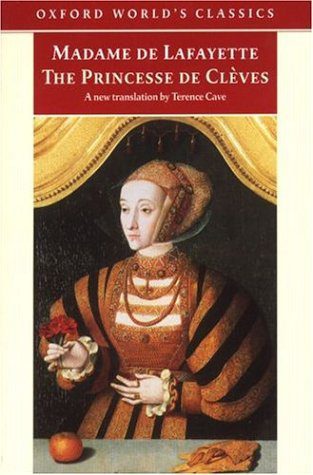Title: The Princesse de Clèves
Author: Madame de La Fayette
First published March 17, 1678
288 pages, Paperback
ISBN: 9780192837264 (ISBN10: 0192837265)
Rating: 3.35
Overview
Another exceptional addition to the renowned Oxford Shakespeare series, this edition of King Henry VI, Part 3 offers a fresh perspective on the earliest texts of the play. Drawing upon extensive research and analysis, this edition presents new evidence about Shakespeare’s revision of the play, challenging conventional interpretations of its nature and relationship.
The introduction and commentary are thought-provoking and stage-oriented, providing insightful discussions of the play’s meaning and reception. This edition is a must-have for scholars and enthusiasts alike, offering a unique glimpse into the mind of one of the greatest playwrights of all time.
About the Author
Marie-Madeleine Pioche de La Vergne, also known as the Comtesse de la Fayette, was born into a wealthy noble family in Paris. She began serving Queen Anne of Austria as a maid of honor at the age of 16 and received a literary education from Gilles Ménage, who taught her Latin and Italian.
Ménage introduced her to the fashionable salons of Madame de Rambouillet and Madeleine de Scudéry, where she mingled with prominent figures such as Henrietta of England and Antoine Arnauld.
In 1655, La Fayette married François Motier, comte de La Fayette, who was much older than her. They had two sons and lived in country estates in Auvergne and Bourbonnais, but La Fayette frequently visited Paris to socialize with court society and host her own successful salon.
She became friends with François de La Rochefoucauld, author of Maximes, who introduced her to other literary luminaries such as Racine and Boileau.
La Fayette anonymously published her first novel, La Princesse de Montpensier, in 1662. She also wrote Zaïde, a Hispano-Moorish romance, and her most famous work, La Princesse de Clèves, which is considered by many to be the first true French novel and a prototype of the early psychological novel.
After the deaths of La Rochefoucauld and her husband, La Fayette led a less active social life. She published three works posthumously: La Comtesse de Tende, Histoire d’Henriette d’Angleterre, and Memoires de la Cour de France.
Editoral Review
The Princesse de Clves, written by Madame de La Fayette and first published in 1678, is a French classic that continues to captivate readers with its timeless exploration of love, duty, and self-restraint. The book is hailed as one of the earliest works of European literature to depict the inner thoughts and emotions of a female protagonist, elevating its status as a pioneering feminist masterpiece.
Set in the 16th-century French court of King Henri II, the novel centers around the titular character, Princesse de Clves, who is newly wedded to a prince she does not love. As she navigates the complexities of royal court politics and etiquette, she catches the eye of the Duke of Nemours, a handsome and charming nobleman whom she is taken with.
However, the Princess discovers that her passion for the Duke is a threat to the virtue and honor expected of her station, and must find a way to reconcile her heart’s desires with her duty to her husband and her kingdom. One of the strengths of the book is its meticulous portrayal of 16th-century France, providing readers with a sense of the opulence and pomp of aristocratic life during that era.
Madame de La Fayette’s prose is elegant and refined, perfect for communicating the intricacies and nuances of the courtly culture. Her portrayal of the emotional and psychological struggles that the Princess faces is both relatable and timeless, as readers can draw parallels between the Princess’s predicament and contemporary debates around love and fidelity.
Despite its brief length, The Princesse de Clves packs a punch, as Madame de La Fayette weaves a complex web of desire, passion, and restraint that keeps readers hooked until the end. The characters are well-developed, each with their own motivations and desires, adding depth and nuance to the novel’s themes.
Perhaps one of the book’s limitations is its narrow focus on the French court, which may make it less accessible to readers unfamiliar with the period or setting. Additionally, some readers may find the story’s lack of resolution unfulfilling, but this is more a reflection of the author’s desire to emphasize the internal struggles of the characters, rather than external plot developments.
Overall, The Princesse de Clves is a must-read for lovers of historical fiction, literary classics, and feminist literature. It is a timeless exploration of love and morality, written with unparalleled elegance and grace.
Readers will come away from the book with a renewed appreciation for the complexities of the human heart, and a sense of awe at Madame de La Fayette’s masterful storytelling. The Washington Post gives The Princesse de Clves an enthusiastic 4.5/5 stars for its sheer literary brilliance and profound insights into human nature.



